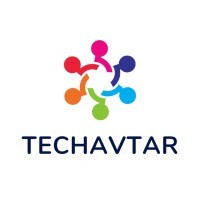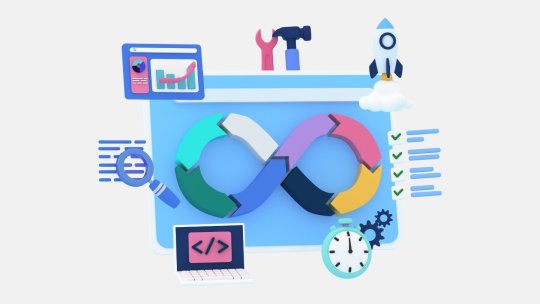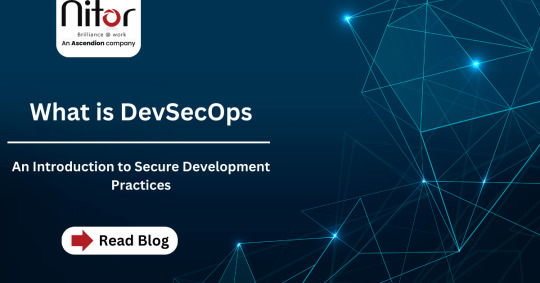#DevOps Blogs
Explore tagged Tumblr posts
Text



I found myself surrounded by companions daring to tackle a real software architecture challenge. We shared a good wine and cheese to conquer it together! (Unfortunately, there’s always something waiting to be dealt with on Monday.)
The glow of my Neovim terminal in Monokai theme reflects my rhythm — a guy who doesn’t stop on weekends but knows that balance isn’t about being all-in, all day.
The setup screams character: a seamless fusion of productivity and comfort. Lazygit commands at my fingertips, a Ghibli-esque avatar paired with Neofetch adding a touch of Tumblr aesthetic, and a playlist of Korean indie OSTs playing in the background to add depth to every keystroke.
This is how I drive — in code, creativity, and moments that are unapologetically mine.
#study blog#study aesthetic#studyblr#programmer#software development#student#studyblr community#studyblr europe#studyblr aesthetic#dark academia#dark aesthetic#night sky#student life#student university#developer#coding#programming#software#softwareengineering#software engineer#software engineering#software developers#devops#studyblr brazil#studies#study inspiration#study spot#self improvement#aesthetic
63 notes
·
View notes
Text

#kernelbr0ken#kernelbroken#kernel-br0ken#kernel-broken#aesthetic#photography#funny#nature#relatable#blog#tumblr#divertido#linux#linux memes#linuxposting#programmerhumor#linuxmemes#codinglife#devops#sysadmin#buglife#softwareengineering#bash#git#vim#emacs#kernel#ubuntu#debian#archlinux
1 note
·
View note
Text

Docker-Compose is the essential tool for managing multi-container Docker applications. This article will give you a comprehensive introduction to its features, installation and usage.
Read more
0 notes
Text
AI in DevSecOps: Revolutionizing Security Testing and Code Analysis

DevSecOps, short for Development, Security, and Operations, is an approach that integrates security practices within the DevOps workflow. You can think of it as an extra step necessary for integrating security. Before, software development focused on speed and efficiency, often delaying security to the final stages.
However, the rise in cyber threats has made it essential to integrate security into every phase of the software lifecycle. This evolution gave rise to DevSecOps, ensuring that security is not an afterthought but a shared responsibility across teams.
From DevOps to DevSecOps: The Main Goal
The shift from DevOps to DevSecOps emphasizes applying security into continuous integration and delivery (CI/CD) pipelines. The main goal of DevSecOps is to build secure applications by automating security checks. This approach helps in fostering a culture where developers, operations teams, and security experts collaborate seamlessly.
How is AI Reshaping the Security Testing & Code Analysis Industry?
Artificial intelligence and generative AI are transforming the landscape of security testing and code analysis by enhancing precision, speed, and scalability. Before AI took over, manual code reviews and testing were time-consuming and prone to errors. AI-driven solutions, however, automate these processes, enabling real-time vulnerability detection and smarter decision-making.
Let’s look at how AI does that in detail:
AI models analyze code repositories to identify known and unknown vulnerabilities with higher accuracy.
Machine learning algorithms predict potential attack vectors and their impact on applications.
AI tools simulate attacks to assess application resilience, saving time and effort compared to manual testing.
AI ensures code adheres to security and performance standards by analyzing patterns and dependencies.
As you can imagine, there have been several benefits of this:
Reducing False Positives: AI algorithms improve accuracy in identifying real threats.
Accelerating Scans: Traditional methods could take hours, but AI-powered tools perform security scans in minutes.
Self-Learning Capabilities: AI systems evolve based on new data, adapting to emerging threats.
Now that we know about the benefits AI has, let’s look at some challenges AI could pose in security testing & code analysis:
AI systems require large datasets for training, which can expose sensitive information if not properly secured. This could cause disastrous data leaks.
AI models trained on incomplete or biased data may lead to blind spots and errors.
While AI automates many processes, over-reliance can result in missed threats that require human intuition to detect.
Cybercriminals are leveraging AI to create advanced malware that can bypass traditional security measures, posing a new level of risk.
Now that we know the current scenario, let’s look at how AI in DevSecOps will look like in the future:
The Future of AI in DevSecOps
AI’s role in DevSecOps will expand with emerging trends as:
Advanced algorithms will proactively search for threats across networks, to prevent attacks.
Future systems will use AI to detect vulnerabilities and automatically patch them without human intervention.
AI will monitor user and system behavior to identify anomalies, enhancing the detection of unusual activities.
Integrated AI platforms will facilitate seamless communication between development, operations, and security teams for faster decision-making.
AI is revolutionizing DevSecOps by making security testing and code analysis smarter, faster, and more effective. While challenges like data leaks and algorithm bias exist, its potential is much more than the risks it poses.
To learn how our AI-driven solutions can elevate your DevSecOps practices, contact us at Nitor Infotech.
#continuous integration#software development#software testing#engineering devops#applications development#security testing#application security scanning#software services#nitorinfotech#blog#ascendion#gen ai
0 notes
Text
there is absolutely a universe, probably not even that far from ours, where I am an IT guy.
"IT guys" is gender neutral but it definitely does not include all persons of gender who happen to be in Information Technology and its associated disciplines. All IT guys are persons in information technology; not all persons in information technology are IT guys.
#had an interview this morning with another lawyer working in a very technical space#and to be honest? sparks flew. we got on great. we were both laughing and joking about the wrinkles of R&D#the tech guys who read a blog post and decide they know how to practice law#at the end he just flat-out admitted he was recommending me to the hiring manager.#these are my people. I can't code but in an alternate universe I was a devops engineer.#no wonder the company has to secretly manipulate you
211 notes
·
View notes
Text
How To Become a Successful Freelance Developer & Other Tech
In this article, we are going through a detailed roadmap for tech professionals looking to transition into freelancing. We cover the essential steps to launch and maintain a successful freelance career in the technology sector. From identifying your niche and building a compelling portfolio to developing pricing strategies, acquiring clients, and managing your freelance business, this guide…
#freelance Amazon seller consultant#freelance Android developer#freelance animator#freelance app developer#freelance blog writer#freelance branding consultant#freelance business analyst#freelance business consultant#freelance CAD designer#freelance cloud engineer#freelance community manager#freelance content writer#freelance copywriter#freelance CRM consultant#freelance customer service#freelance cybersecurity consultant#freelance data analyst#freelance data entry specialist#freelance DevOps specialist#freelance digital marketing#freelance dropshipping consultant#freelance eBay seller consultant#freelance ecommerce developer#freelance education consultant#freelance email copywriter#freelance email marketing#freelance environmental consultant#freelance ERP consultant#freelance Etsy seller consultant#freelance event planner
0 notes
Text
Master the Future of DevOps with the Microsoft Azure DevOps Training Course (AZ-400)
In the fast-changing world of IT, DevOps has become an essential field that connects development and operations, enabling smooth software delivery and improved teamwork. As businesses worldwide increasingly adopt cloud services, proficiency in Microsoft Azure DevOps is becoming indispensable for IT professionals looking to stay ahead in their careers. The Microsoft Azure DevOps Training Course (AZ-400), offered by eMexo Technologies in Electronic City, Bangalore, is designed to equip you with the necessary skills to excel in this domain.
Why Choose Microsoft Azure DevOps?
Microsoft Azure has firmly established itself as one of the leading cloud platforms globally, providing a comprehensive suite of services that cater to various aspects of cloud computing, including storage, networking, and analytics. However, what truly sets Azure apart is its robust DevOps capabilities, which enable organizations to automate and streamline their software development lifecycle.
Azure DevOps services offer a unified platform for CI/CD (Continuous Integration/Continuous Deployment), source code management, and agile project management. Mastery of these tools is critical for anyone working in a modern DevOps environment. By completing the AZ-400 certification, professionals demonstrate their expertise in designing and implementing DevOps practices using Azure technologies, making them valuable assets to any organization.
Comprehensive Training at eMexo Technologies
As the best Microsoft Azure DevOps Training Institute in Electronic City Bangalore, eMexo Technologies is committed to providing a learning experience beyond the basics. Our Microsoft Azure DevOps Training Course (AZ-400) is meticulously structured to cover all the essential concepts, tools, and techniques needed to master DevOps on Azure. Here’s a glimpse of what our course offers:
In-depth curriculum Aligned with Industry Standards Our course content is constantly updated to reflect the latest trends and practices in the industry. The curriculum is aligned with the Microsoft AZ-400 certification exam, ensuring that you are well-prepared to pass the exam with flying colors. The topics covered include: Introduction to Azure DevOps: Understanding the basics of DevOps and the Azure DevOps platform. Version Control with Git: Learn how to manage source code effectively using Git repositories hosted on Azure Repos. Continuous Integration (CI): Setting up automated builds and integrating code changes seamlessly using Azure Pipelines. Continuous Deployment (CD): Automating the deployment of applications across various environments using Azure Pipelines. Infrastructure as Code (IaC): Implementing and managing infrastructure using tools like Azure Resource Manager (ARM) and Terraform. Monitoring and Logging: Setting up monitoring and logging solutions using Azure Monitor and Azure Log Analytics. Security and Compliance: Implementing security practices and ensuring compliance with industry standards.
Hands-on experience with Real-World Projects We believe in learning by doing. Our Microsoft Azure DevOps Course in Electronic City Bangalore is packed with hands-on labs and real-world projects that allow you to apply the concepts you learn in class. These projects are designed to simulate real-life scenarios, giving you the experience needed to tackle challenges in a professional environment.
Expert Instructors with Industry Experience Our instructors are experienced experts with extensive backgrounds in DevOps and cloud computing. They bring their industry insights into the classroom, giving you a deeper understanding of how Azure DevOps is applied in real-world situations. Their guidance will help you gain the practical skills needed to excel in your career.
Flexible Learning Options Understanding that professionals have different schedules, eMexo Technologies offers flexible learning options. Whether you prefer weekday classes, weekend batches, or even online learning, we have you covered. Our flexible schedule ensures you can balance your learning with your other commitments.
Post-Training Support and Placement Assistance We offer comprehensive post-training support, including doubt-clearing sessions, access to recorded classes, and additional learning resources. Furthermore, we provide placement assistance to help you land your dream job. Our committed placement team works diligently to link you with leading employers in the industry. Why eMexo Technologies is the Best Microsoft AzureDevops training institute in Bangalore Here’s why eMexo Technologies is the preferred choice for aspiring Azure DevOps professionals in Electronic City, Bangalore: Proven Track Record: We have successfully trained thousands of professionals who have gone on to secure high-paying jobs in top IT companies. State-of-the-Art Infrastructure: We provide excellent training facilities equipped with the latest technology and tools. Personalized Attention: We keep our class sizes small to guarantee that every student receives individualized attention from the instructor. Affordability: Our world-class training is available at competitive prices, making it accessible to everyone. The Future of DevOps and Cloud Computing The demand for Azure DevOps professionals grow in the coming years as more organizations adopt cloud-based solutions to enhance their agility and scalability. By mastering Azure DevOps, you position yourself at the forefront of this technological revolution, opening up a world of opportunities in the IT industry. Conclusion The Microsoft Azure DevOps Training Course (AZ-400) offered by eMexo Technologies in Electronic City, Bangalore, is your gateway to a successful career in DevOps. An all-encompassing curriculum provides you with the expertise and understanding necessary to thrive in the industry. Enroll now and join the ranks of successful professionals who have transformed their careers with eMexo Technologies.
0 notes
Text

#Top Technology Services Company in India#Generative AI Development Company#AI Calling Software#AI Software Development Company#Best Chatbot Service Company#AI Calling Software Development#AI Automation Software#Best AI Chat Bot Development Company#AI Software Dev Company#Top Web Development Company in India#Top Software Services Company in India#Best Product Design Company in World#Best Cloud and Devops Company#Best Analytic Solutions Company#Best Blockchain Development Company in India#Best Tech Blogs in 2024#Creating an AI-Based Product#Custom Software Development for Healthcare#NexaCalling Best AI Calling Bot#Best ERP Management System#WhatsApp Bulk Sender#Neighborhue Frontend Vercel
0 notes
Text
The Future of DevOps Enhancing Efficiency through Automation

While automation is important in DevOps, don't forget the crucial role that communication and collaboration play in the process. Check out our latest blog post to learn more.
Read the blog
#DevOps#devopstips#TECHBLOG#blogging#softwaredevelopment#cloud#programming#cloudcomputing#technology#developer#software#esourceful
0 notes
Text
DevOps Platforms And Software Development

28 Best DevOps Platforms And Tools: The ULTIMATE Guide
These best DevOps platforms and software can be a game-changer for businesses aiming to streamline their software deployment and development processes. The right platform or tool automates tasks and boosts collaboration between the operations and development teams. This, in turn, leads to quicker deployment of high-quality software that meets user expectations. Selecting from the Best DevOps Platforms and Software requires understanding your team's specific needs and how each tool can address them effectively. Tech Ahead provides cutting-edge DevOps platforms and software development solutions to streamline and enhance the software delivery lifecycle.
Understanding DevOps Platforms and Software
'DevOps' amalgamates two pivotal roles in software development: Development (Dev) and Operations (Ops). It's a methodology that encourages collaboration between these traditionally separate teams to streamline the entire software development lifecycle. Focusing on DevOps platforms and tools, they are integrated systems designed to support this collaborative approach by automating many routine tasks involved in developing applications from design through deployment stages.
Purpose of DevOps Tools
A range of specialized DevOps tools have been developed for different aspects of DevOps practices. Some handle code creation, while others manage testing or deployment processes. These popular DevOps automation tools enable faster releases with fewer errors due to their automation capabilities at various stages. Besides accelerating release cycles, these open-source DevOps tools also promote better communication among operations teams, thus fostering a culture where continuous improvement becomes part of everyday work habits within agile software development environments.
Monitoring and Error Reporting Platforms: The Backbone of App Performance
The effectiveness of a web app or mobile application is essential for its success. Monitoring and error reporting platforms are the backbones for maintaining this performance, offering tools that track application behavior, detect anomalies, and diagnose issues in real time.
Let's dive into these top 28 Best DevOps Platforms and Tools:
Raygun: Comprehensive Error Tracking
Nagios: Pioneer in IT Infrastructure Monitoring
Firebase Crashlytics: Specialized Mobile App Support
Opsgenie by Atlassian
Puppet Enterprise: The Model-Driven Approach
Cooking up Configurations with Progress Chef
An Open Source Solution: Ansible
SysAid: An All-Rounder In Configuration Management
Jenkins: A Versatile Open-Source Tool
Bamboo: Seamless Release Management
Amazon ECS: Containerized Deployments Simplified
Octopus Deploy: Advanced Deployment Functionalities
CircleCI: Speedy Builds And Tests
Docker: A Popular DevOps Tool
Redhat Openshift: Enterprise-Grade Solution
Kubernetes: The Container Orchestration King
LXC/LXD: Linux-Based Virtualization
Git: A Leading SCM Tool
Mercurial: User-friendly SCM
Apache (SVN) Subversion
SonarQube
Jira
Gradle
Atlassian Open DevOps
Azure DevOps Services
AWS (Amazon Web Services) DevOps
Terraform: An Open-Source Tool for Infrastructure Management
Google Cloud Build: Streamlining Continuous Integration/Continuous Deployment
TechAhead: Pioneering Global Excellence In The Field Of Development Work With Best-in-class Software
An industry leader in this domain - TechAhead has earned global recognition for their expertise in developing high-performing digital products using these best-in-class DevOps Platforms and software. They understand the importance of selecting appropriate DevOps automation tools tailored to client requirements, ensuring efficient workflow throughout the entire software development lifecycle. Their commitment to quality deliverables sets them apart, making them a one-stop solution provider for all application and software development automation needs.
Navigating numerous options might seem daunting, but it becomes easier to pick suitable ones once you identify what your team requires. No two projects are alike, so finding the right fit for your needs is essential. And if you ever find yourself needing expert guidance, remember companies like TechAhead are always ready to help.
The DevOps landscape is vast and diverse, with many platforms and software tools available to facilitate the development, deployment, monitoring, and maintenance of web apps and mobile applications. These popular DevOps tools are essential in streamlining operations teams' workflows while fostering collaboration among DevOps teams.
Conclusion
Exploring the world of DevOps platforms and software can feel like navigating a labyrinth. But, with this comprehensive guide, you've been armed with knowledge about top tools in various categories - from monitoring to DevOps configuration management tools, CI/CD deployment, and containerization. We've dived into source code management and build tools while shedding light on cloud-based solutions. We even touched upon security essentials for your applications.
The key takeaway? No single answer fits all when it comes to the best DevOps tools. It all concerns what works best with your team's needs and workflow. Understanding these Best DevOps Platforms and Software is part of the journey towards efficient software development. The real magic happens when you leverage them effectively. Contact TechAhead today for all your DevOps development, web, and mobile app development!
#https://www.techaheadcorp.com/blog/best-devops-platforms-software/#DevOps tools#DevOps practices#DevOps solutions#DevOps automation frameworks#DevOps software stack#DevOps security tools#Best DevOps Platforms and software#DevOps Platforms and Software#DevOps Platforms and Software Development#DevOps Platforms#DevOps Platforms Tools#TechAhead Corp#TechAheadCorp#techaheadcorp.com
0 notes
Text
New blog on DevOps
0 notes
Text

Normal night in the midnight.
#coding#programmer#programming#software development#study aesthetic#student#study blog#studyblr#developer#software#study motivation#studyspo#studying#study art#studyaesthetic#study study study#self improvement#studyblr community#studyblr aesthetic#study life#student aesthetic#dark aesthetic#dark academia#stublr br#studentlife#student life#web development#devops#infrastructure#softwarengineer
18 notes
·
View notes
Text
So, let me try and put everything together here, because I really do think it needs to be talked about.
Today, Unity announced that it intends to apply a fee to use its software. Then it got worse.
For those not in the know, Unity is the most popular free to use video game development tool, offering a basic version for individuals who want to learn how to create games or create independently alongside paid versions for corporations or people who want more features. It's decent enough at this job, has issues but for the price point I can't complain, and is the idea entry point into creating in this medium, it's a very important piece of software.
But speaking of tools, the CEO is a massive one. When he was the COO of EA, he advocated for using, what out and out sounds like emotional manipulation to coerce players into microtransactions.
"A consumer gets engaged in a property, they might spend 10, 20, 30, 50 hours on the game and then when they're deep into the game they're well invested in it. We're not gouging, but we're charging and at that point in time the commitment can be pretty high."
He also called game developers who don't discuss monetization early in the planning stages of development, quote, "fucking idiots".
So that sets the stage for what might be one of the most bald-faced greediest moves I've seen from a corporation in a minute. Most at least have the sense of self-preservation to hide it.
A few hours ago, Unity posted this announcement on the official blog.
Effective January 1, 2024, we will introduce a new Unity Runtime Fee that’s based on game installs. We will also add cloud-based asset storage, Unity DevOps tools, and AI at runtime at no extra cost to Unity subscription plans this November. We are introducing a Unity Runtime Fee that is based upon each time a qualifying game is downloaded by an end user. We chose this because each time a game is downloaded, the Unity Runtime is also installed. Also we believe that an initial install-based fee allows creators to keep the ongoing financial gains from player engagement, unlike a revenue share.
Now there are a few red flags to note in this pitch immediately.
Unity is planning on charging a fee on all games which use its engine.
This is a flat fee per number of installs.
They are using an always online runtime function to determine whether a game is downloaded.
There is just so many things wrong with this that it's hard to know where to start, not helped by this FAQ which doubled down on a lot of the major issues people had.
I guess let's start with what people noticed first. Because it's using a system baked into the software itself, Unity would not be differentiating between a "purchase" and a "download". If someone uninstalls and reinstalls a game, that's two downloads. If someone gets a new computer or a new console and downloads a game already purchased from their account, that's two download. If someone pirates the game, the studio will be asked to pay for that download.
Q: How are you going to collect installs? A: We leverage our own proprietary data model. We believe it gives an accurate determination of the number of times the runtime is distributed for a given project. Q: Is software made in unity going to be calling home to unity whenever it's ran, even for enterprice licenses? A: We use a composite model for counting runtime installs that collects data from numerous sources. The Unity Runtime Fee will use data in compliance with GDPR and CCPA. The data being requested is aggregated and is being used for billing purposes. Q: If a user reinstalls/redownloads a game / changes their hardware, will that count as multiple installs? A: Yes. The creator will need to pay for all future installs. The reason is that Unity doesn’t receive end-player information, just aggregate data. Q: What's going to stop us being charged for pirated copies of our games? A: We do already have fraud detection practices in our Ads technology which is solving a similar problem, so we will leverage that know-how as a starting point. We recognize that users will have concerns about this and we will make available a process for them to submit their concerns to our fraud compliance team.
This is potentially related to a new system that will require Unity Personal developers to go online at least once every three days.
Starting in November, Unity Personal users will get a new sign-in and online user experience. Users will need to be signed into the Hub with their Unity ID and connect to the internet to use Unity. If the internet connection is lost, users can continue using Unity for up to 3 days while offline. More details to come, when this change takes effect.
It's unclear whether this requirement will be attached to any and all Unity games, though it would explain how they're theoretically able to track "the number of installs", and why the methodology for tracking these installs is so shit, as we'll discuss later.
Unity claims that it will only leverage this fee to games which surpass a certain threshold of downloads and yearly revenue.
Only games that meet the following thresholds qualify for the Unity Runtime Fee: Unity Personal and Unity Plus: Those that have made $200,000 USD or more in the last 12 months AND have at least 200,000 lifetime game installs. Unity Pro and Unity Enterprise: Those that have made $1,000,000 USD or more in the last 12 months AND have at least 1,000,000 lifetime game installs.
They don't say how they're going to collect information on a game's revenue, likely this is just to say that they're only interested in squeezing larger products (games like Genshin Impact and Honkai: Star Rail, Fate Grand Order, Among Us, and Fall Guys) and not every 2 dollar puzzle platformer that drops on Steam. But also, these larger products have the easiest time porting off of Unity and the most incentives to, meaning realistically those heaviest impacted are going to be the ones who just barely meet this threshold, most of them indie developers.
Aggro Crab Games, one of the first to properly break this story, points out that systems like the Xbox Game Pass, which is already pretty predatory towards smaller developers, will quickly inflate their "lifetime game installs" meaning even skimming the threshold of that 200k revenue, will be asked to pay a fee per install, not a percentage on said revenue.

[IMAGE DESCRIPTION: Hey Gamers!
Today, Unity (the engine we use to make our games) announced that they'll soon be taking a fee from developers for every copy of the game installed over a certain threshold - regardless of how that copy was obtained.
Guess who has a somewhat highly anticipated game coming to Xbox Game Pass in 2024? That's right, it's us and a lot of other developers.
That means Another Crab's Treasure will be free to install for the 25 million Game Pass subscribers. If a fraction of those users download our game, Unity could take a fee that puts an enormous dent in our income and threatens the sustainability of our business.
And that's before we even think about sales on other platforms, or pirated installs of our game, or even multiple installs by the same user!!!
This decision puts us and countless other studios in a position where we might not be able to justify using Unity for our future titles. If these changes aren't rolled back, we'll be heavily considering abandoning our wealth of Unity expertise we've accumulated over the years and starting from scratch in a new engine. Which is really something we'd rather not do.
On behalf of the dev community, we're calling on Unity to reverse the latest in a string of shortsighted decisions that seem to prioritize shareholders over their product's actual users.
I fucking hate it here.
-Aggro Crab - END DESCRIPTION]
That fee, by the way, is a flat fee. Not a percentage, not a royalty. This means that any games made in Unity expecting any kind of success are heavily incentivized to cost as much as possible.

[IMAGE DESCRIPTION: A table listing the various fees by number of Installs over the Install Threshold vs. version of Unity used, ranging from $0.01 to $0.20 per install. END DESCRIPTION]
Basic elementary school math tells us that if a game comes out for $1.99, they will be paying, at maximum, 10% of their revenue to Unity, whereas jacking the price up to $59.99 lowers that percentage to something closer to 0.3%. Obviously any company, especially any company in financial desperation, which a sudden anchor on all your revenue is going to create, is going to choose the latter.
Furthermore, and following the trend of "fuck anyone who doesn't ask for money", Unity helpfully defines what an install is on their main site.
While I'm looking at this page as it exists now, it currently says
The installation and initialization of a game or app on an end user’s device as well as distribution via streaming is considered an “install.” Games or apps with substantially similar content may be counted as one project, with installs then aggregated to calculate the Unity Runtime Fee.
However, I saw a screenshot saying something different, and utilizing the Wayback Machine we can see that this phrasing was changed at some point in the few hours since this announcement went up. Instead, it reads:
The installation and initialization of a game or app on an end user’s device as well as distribution via streaming or web browser is considered an “install.” Games or apps with substantially similar content may be counted as one project, with installs then aggregated to calculate the Unity Runtime Fee.
Screenshot for posterity:

That would mean web browser games made in Unity would count towards this install threshold. You could legitimately drive the count up simply by continuously refreshing the page. The FAQ, again, doubles down.
Q: Does this affect WebGL and streamed games? A: Games on all platforms are eligible for the fee but will only incur costs if both the install and revenue thresholds are crossed. Installs - which involves initialization of the runtime on a client device - are counted on all platforms the same way (WebGL and streaming included).
And, what I personally consider to be the most suspect claim in this entire debacle, they claim that "lifetime installs" includes installs prior to this change going into effect.
Will this fee apply to games using Unity Runtime that are already on the market on January 1, 2024? Yes, the fee applies to eligible games currently in market that continue to distribute the runtime. We look at a game's lifetime installs to determine eligibility for the runtime fee. Then we bill the runtime fee based on all new installs that occur after January 1, 2024.
Again, again, doubled down in the FAQ.
Q: Are these fees going to apply to games which have been out for years already? If you met the threshold 2 years ago, you'll start owing for any installs monthly from January, no? (in theory). It says they'll use previous installs to determine threshold eligibility & then you'll start owing them for the new ones. A: Yes, assuming the game is eligible and distributing the Unity Runtime then runtime fees will apply. We look at a game's lifetime installs to determine eligibility for the runtime fee. Then we bill the runtime fee based on all new installs that occur after January 1, 2024.
That would involve billing companies for using their software before telling them of the existence of a bill. Holding their actions to a contract that they performed before the contract existed!
Okay. I think that's everything. So far.
There is one thing that I want to mention before ending this post, unfortunately it's a little conspiratorial, but it's so hard to believe that anyone genuinely thought this was a good idea that it's stuck in my brain as a significant possibility.
A few days ago it was reported that Unity's CEO sold 2,000 shares of his own company.
On September 6, 2023, John Riccitiello, President and CEO of Unity Software Inc (NYSE:U), sold 2,000 shares of the company. This move is part of a larger trend for the insider, who over the past year has sold a total of 50,610 shares and purchased none.
I would not be surprised if this decision gets reversed tomorrow, that it was literally only made for the CEO to short his own goddamn company, because I would sooner believe that this whole thing is some idiotic attempt at committing fraud than a real monetization strategy, even knowing how unfathomably greedy these people can be.
So, with all that said, what do we do now?
Well, in all likelihood you won't need to do anything. As I said, some of the biggest names in the industry would be directly affected by this change, and you can bet your bottom dollar that they're not just going to take it lying down. After all, the only way to stop a greedy CEO is with a greedier CEO, right?
(I fucking hate it here.)
And that's not mentioning the indie devs who are already talking about abandoning the engine.
[Links display tweets from the lead developer of Among Us saying it'd be less costly to hire people to move the game off of Unity and Cult of the Lamb's official twitter saying the game won't be available after January 1st in response to the news.]
That being said, I'm still shaken by all this. The fact that Unity is openly willing to go back and punish its developers for ever having used the engine in the past makes me question my relationship to it.
The news has given rise to the visibility of free, open source alternative Godot, which, if you're interested, is likely a better option than Unity at this point. Mostly, though, I just hope we can get out of this whole, fucking, environment where creatives are treated as an endless mill of free profits that's going to be continuously ratcheted up and up to drive unsustainable infinite corporate growth that our entire economy is based on for some fuckin reason.
Anyways, that's that, I find having these big posts that break everything down to be helpful.
#Unity#Unity3D#Video Games#Game Development#Game Developers#fuckshit#I don't know what to tag news like this
6K notes
·
View notes
Text
Missed Mile Markers:
Welcome to Missed Mile Markers! 🌿📸
Hello and welcome,
I’m thrilled you’ve found your way here! I’m a quirky, humorous, and enthusiastic photographer, capturing the beauty of Colorado’s parks and wildlife. Originally, I come from a background in internet security and technology—specializing in DevOps, infrastructure, and optimization—and I dabble in programming. But here’s where things get interesting: I’m also colorblind.
The Beauty of Seeing Differently
Being colorblind is at the core of how I experience and share the world through photography. I don’t edit my photos, and here’s why: if I were to edit them for my eyes, they just wouldn’t look right to most people. The warmth, the balance—it would all be off! My goal is to capture moments that stand out in my mind’s eye. If it catches my attention, then I figure for those who see color as it truly is, you’ll often be treated to something exquisite. Seeing differently means seeing something truly unique.
Here are some examples as how things look to me.
Here are edited photos that begin to depict how I observe the world. The bottom one is the normal photo which is unedited. The top 2 photographs are edited to so you can begin to understand how I see the world.



That is a big difference, or so I am told.....
No Formal Training, Just Passion
I have no formal photography training. Everything I know comes from reading, learning, and then simply getting out there and experimenting—like that classic advice, "always shoot into the sun"… just kidding, never shoot into the sun, unless you want to! 😄
A Lesson in Color: Unedited, Unfiltered
Take these two photos, for instance—both unedited, taken at the same time with the same settings, yet the difference in colors amazes me every time.


The difference in the above photos are slight positional differences, and slight variation in time (maybe seconds). However the only difference I see is the one on the left looks darker....
The variations remind me why I prefer not to edit my photos. To me, there’s beauty in capturing a scene as it is, without my colorblindness adjusting the reality of it.
Other Works:
Youtube Channel:
Video Blog: https://www.tumblr.com/videomilemarkers
Interested in My Work?
I do sell my photographs, and in most cases, I’m more than happy to allow them to be used in creative works. If that’s something you’re interested in, just shoot me a DM—I’d love to chat more!
Thanks for visiting, and I hope you enjoy seeing the world through my eyes.
~ MissedMileMarkers
#about myself#main page#missedmilemarkers#colorblind#creativity#original content#original photographers#original post#useful stuff#for reference
402 notes
·
View notes
Text

What is DevSecOps?
In traditional software development, security measures are often implemented as a separate phase. This is mostly performed after the development is complete. DevSecOps seeks to break down the silos between – development, security, and operations by integrating security practices into every stage of the development process.
The Evolution of DevSecOps
The evolution from DevOps to DevSecOps marks a significant paradigm shift in response to the growing complexities of modern software development and the imperative need for enhanced security measures.
In the early 2010s, the advent of DevOps aimed to bridge the traditional gap between development and operations teams. To streamline the software development lifecycle (SDLC) these were the focus:
Collaboration
Communication
Automation
Read our full blog on DevSecOps - https://bit.ly/3umLMlf
0 notes
Text
Maybe I'm just a baby girl of the interwebs so that's why I've never seen it before but I've just discovered a new scam. Someone came into my DMs with just "hi" (not a good start I'll admit) and I checked their blog, it looked alive and had cool drawings. We chatted a little bit and I checked their blog a little closer and oops!
The tags on the drawings are very generic (my art, drawing, etc), despite sometimes showing recognisable characters
Took me too long to notice but the style is very different between every piece
The pace at which they draw is unrealistic
I can't make this up they pinned someone else's intro post
"work complete" on a 10 minute sketch when the everything else is fully colored, sometimes shaded
"Comission" babe I'm a devops engineer and even I can tell this is a practice sheet
Bonus: drawing I've already seen before
I then proceeded back to our chat to let them know they could go fuck themselves for stealing from artists, and before I finished typing they had the audacity to ask if I wanted to buy "their" art. Which. Once again I'm not really an expert in the field but I don't think that's how it works ever?????
22 notes
·
View notes